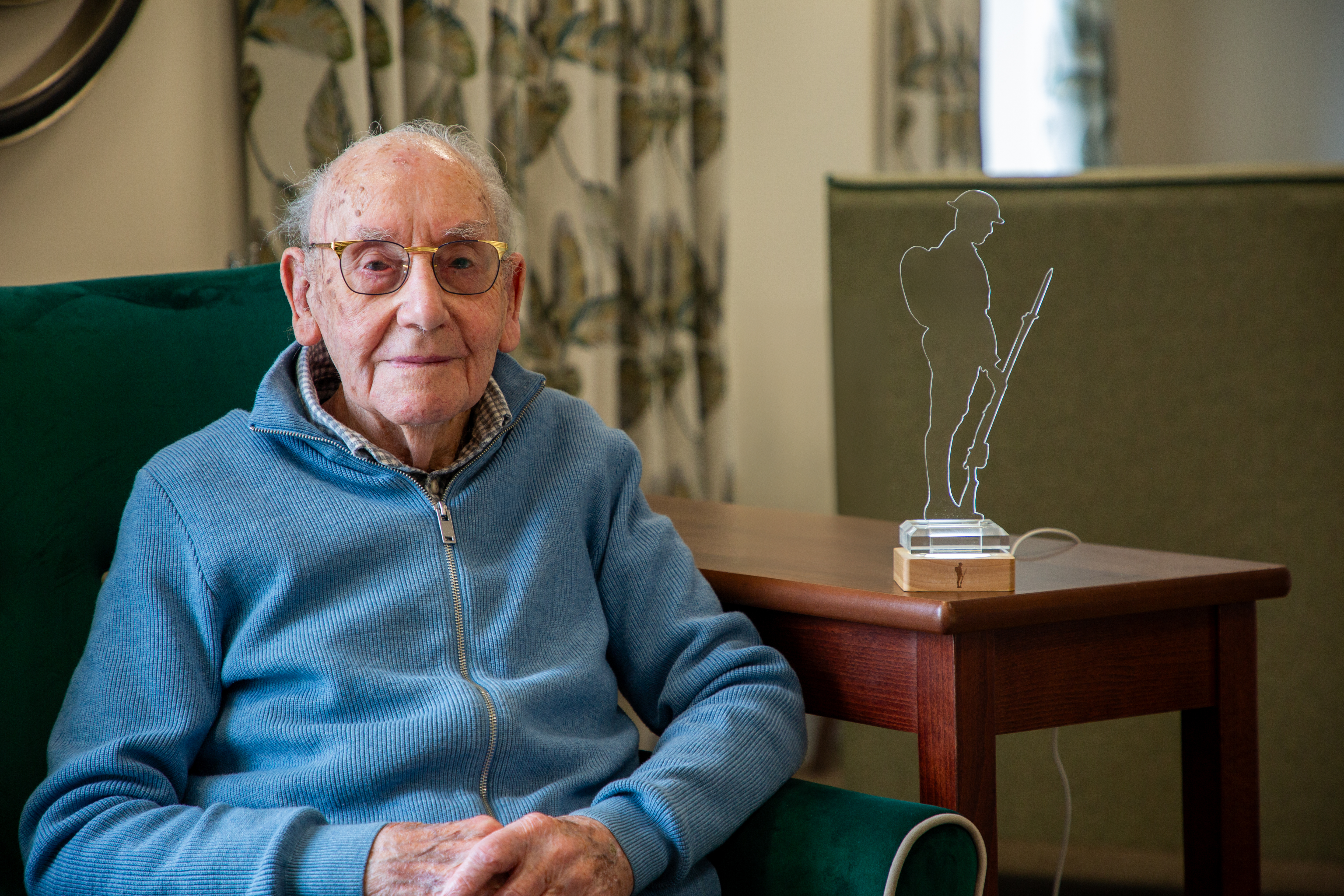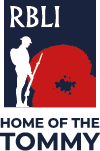
“So That Others Might Know”: The Story of Percy Bowpitt, Soldier of the Forgotten Army
In the spring of 1942, Percy Bowpitt was just sixteen and working long factory shifts producing generators for the Navy. With determination beyond his years, he forged a letter in his father’s name claiming he was eighteen, took the King’s Shilling, and was told to await his call-up papers.
What followed took him thousands of miles from home, through the unrelenting jungles of the Far East, and into the ranks of a force often overlooked: The Forgotten Army.
Now 99 and living in RBLI’s Centenary Village, Percy has found the space to reflect and to write. What unfolds is a tale of quiet resilience, loyalty, loss, and the moments of camaraderie that endured even in war. He shares his story now, on the 80th anniversary of VJ Day, so that, in his own words, “others might know.”

Percy began his Army training at Invicta Lines, where he was introduced to the demands of Army life: rough wooden boards for beds, straw-filled mattresses, coarse uniforms, and inoculations that brought fever and nausea. But in the discomfort, camaraderie formed. There was Gus, the witty East End barrow boy; “The Colonel,” with a sharp accent who got stuck in and earned his place as “one of the boys”; and Jock, the big-hearted highlander with a thick accent.
Eager for a change, Percy, Gus, and a few others volunteered for the Royal Armoured Corps. A few weeks later, they were bound for Catterick, the home of the Royal Tank Regiment. There, Percy learnt to drive military vehicles across the freezing moors of Yorkshire – without heaters and often in the biting wind.
Once trained, he boarded the RMS Andes and set sail for India. The crossing was tough, and he slept in a hammock and battled sickness. When Percy eventually arrived in Bombay, he was greeted by intense heat, dust, and chaos.
From there, he was sent to Deolali and later Bhopal for jungle warfare training. It was relentless: gruelling marches, improvised river crossings, mock battles in thick terrain, and constant exhaustion.
Still, there were moments of humour – Char Wallahs (someone who serves tea to soldiers) who squabbled outside tents and the joy of a warm biscuit burgoo (porridge) made with condensed milk.
Percy would ultimately be assigned to the 1st Battalion, Northamptonshire Regiment as part of the 14th Army. The Forgotten Army.
In Burma, the reality of war settled in. The humidity of the jungle bore down like an extra weight, and disease spread quickly. Percy carried a twenty-pound Bren gun, with his No. 2, Bill Cartwright, a farm labourer who was “as tough as old boots”, by his side.
One night in Moreh stays with him. British and Japanese troops were dug in on opposite sides of a narrow stream, both desperate for water. As Percy’s patrol crept down to fill their canisters, they spotted Japanese soldiers doing the same. One raised a scrap of white cloth, and in that moment, both sides turned away, and no shots were fired.
But moments of humanity like that were rare. Nights were often thick with shellfire, frantic repositioning, and the risk of losing a comrade. “I think the most frightening thing was not knowing how everyone else was faring.” At Imphal, their wire was overrun. Percy survived, but many did not.
He was still in combat at the Irrawaddy River when news of VE Day reached them. While celebrations erupted across Europe, for Percy and his unit, the war was very much alive. It was during this campaign that Percy was wounded by a bullet and pulled from the front line with malaria and dysentery. In the field hospital, a matron reminded him how lucky he was. The man in the next bed had lost an eye and an arm. Percy never saw Bill again.
Even then, what lingered in his memory were the small gestures that kept spirits alive: the pranks, the singing, and the generous sharing of a cup of tea.
When the war officially ended on 15 August 1945, there was no grand return, just Percy with his medals tucked into his kit, and the familiar questions: “How long have you got? When are you going back?”
Somewhere in between returning to civvy life and regaining his old job in the Motor Transport Section, Percy met Dorothy. “As they say”, Percy writes, “the rest was history.”
